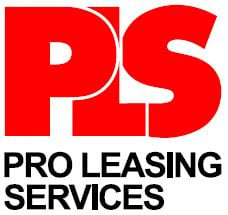Fleet solutions encompass a variety of services designed to assist businesses in managing their vehicle fleets efficiently. These solutions are provided by specialized companies that offer comprehensive support and expertise in fleet management.
Here are some key aspects of fleet solutions:
Fleet Acquisition:
Fleet solutions providers assist businesses in acquiring vehicles tailored to their specific needs. They help analyze requirements, select suitable models, and negotiate favorable purchasing terms. This ensures that companies have the right vehicles for their operations.
Fleet Financing:
Fleet solutions often include financing options to help businesses acquire their desired fleet without significant upfront costs. These financing arrangements can include lease agreements, installment plans, or other customized financial structures, enabling companies to manage their cash flow more effectively.
Fleet Maintenance and Repairs:
Maintaining and repairing a fleet of vehicles can be time-consuming and complex. Fleet solutions providers often offer comprehensive maintenance and repair services. These services may cover routine maintenance, repairs, inspections, and managing service schedules, ensuring that vehicles are kept in optimal condition and minimizing downtime.
Telematics and Tracking:
Fleet solutions frequently incorporate advanced telematics systems and tracking technologies. These tools provide real-time data on vehicle location, usage, fuel consumption, and other important metrics. The data enables businesses to monitor and optimize their fleet’s performance, enhance fuel efficiency, and improve driver safety. Although we do not offer these kinds of fleet solutions, your Pro Fleet Advisor can suggest the right apps for your objectives.
Fleet Optimization and Analytics:
Fleet solutions providers offer analytical tools and expertise to help businesses optimize their fleet operations. Through data analysis and insights, companies can identify opportunities to improve efficiency, reduce costs, and enhance overall productivity. Subsequently, these solutions may include route planning, vehicle utilization analysis, and driver performance monitoring.
Regulatory Compliance:
Fleet management involves adhering to various regulations and compliance standards. Fleet solutions providers stay updated on these requirements and assist businesses in ensuring that their fleet operations meet all necessary legal and regulatory obligations. This is not limited to documentation management, reporting, and maintaining necessary licenses and permits, including,
• Vehicle Registration and Licensing: Fleet managers must ensure that all vehicles in their fleet are properly registered and licensed according to applicable local, state, and national regulations. This includes obtaining and renewing vehicle registrations, license plates, and any necessary permits.
• Insurance Requirements: Fleet vehicles typically require commercial auto insurance coverage. Fleet managers need to maintain appropriate insurance policies that meet legal requirements, cover liability, and protect the company’s assets in the event of accidents or damages.
• Safety Standards: Compliance with safety standards is crucial for fleet operations. This involves adhering to regulations regarding vehicle inspections, regular maintenance, and repairs. It may also include implementing safety training programs for drivers and adhering to hours-of-service regulations to prevent driver fatigue.
• Emissions and Environmental Regulations: Many regions have specific emissions standards and environmental regulations that vehicles must comply with. Fleet managers need to ensure that their vehicles meet these standards, which may involve using low-emission vehicles or maintaining vehicles to minimize pollution.
• Record Keeping and Reporting: Compliance often requires maintaining detailed records and submitting reports to regulatory bodies as necessary. This includes vehicle maintenance records, driver logs, accident reports, and other documentation to demonstrate adherence to regulations.
By actively managing regulatory compliance, fleet managers can operate within the legal framework, reduce risks, and maintain a positive reputation for their business. It is essential to stay informed about changes in regulations and ensure ongoing compliance within the fleet operations.
With Pro Leasing Services, businesses can streamline their operations, reduce administrative burdens, improve cost control, and enhance overall fleet performance. Our comprehensive approach to managing all aspects of a vehicle fleet, allows companies to focus on their core operations while leaving the complexities of fleet management to our Pro Fleet Advisors.
Contact us to learn more about our fleet solutions at Pro Leasing Services.






